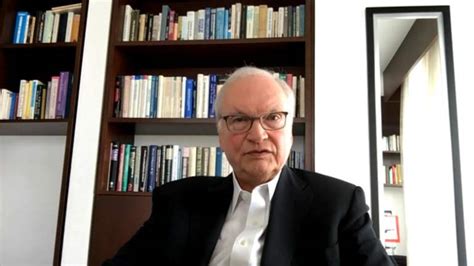A Quote by Bertrand Russell
Science is at no moment quite right, but it is seldom quite wrong, and has, as a rule, a better chance of being right than the theories of the unscientific. It is, therefore, rational to accept it hypothetically.
Related Quotes
If the underdog were always right, one might quite easily try to defend him. The trouble is that very often he is but obscurely right, sometimes only partially right, and often quite wrong; but perhaps he is never so altogether wrong and pig-headed and utterly reprehensible as he is represented to be by those who add the possession of prejudices to the other almost insuperable difficulties of understanding him.
How often people speak of art and science as though they were two entirely different things, with no interconnection. That is all wrong. The true artist is quite rational as well as imaginative and knows what he is doing; if he does not, his art suffers. The true scientist is quite imaginative as well as rational, and sometimes leaps to solutions where reason can follow only slowly; if he does not, his science suffers.
(...) being right all the time acquires a huge importance in education, and there is this terror of being wrong. The ego is so tied to being right that later on in life you are reluctant to accept that you are ever wrong, because you are defending not the idea but your self-esteem. (...) this terror of being wrong means that people have enormous difficulties in changing ideas.
Virtue means doing the right thing, in relation to the right person, at the right time, to the right extent, in the right manner, and for the right purpose. Thus, to give money away is quite a simple task, but for the act to be virtuous, the donor must give to the right person, for the right purpose, in the right amount, in the right manner, and at the right time.
It is rational to choose the right means to your ends to develop very elegant abstract formal theories of rational choice, and then turn these into what look like moral theories. Philosophers tend to be ravished by the formal beauty of such theories, and they don't pay much attention to the fact that our human limitations make them pretty useless in practice, while the simple point about instrumental reasoning is too shallow to be of much real moral interest.


































